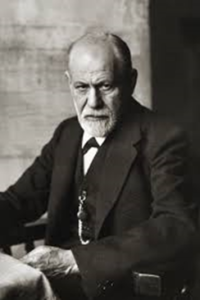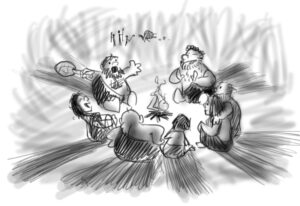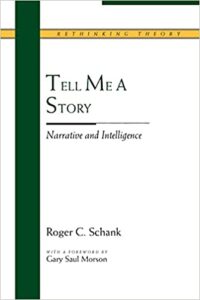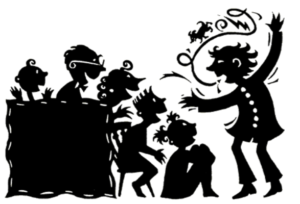Story and storytelling is one of the most important unique characteristics of humans among other living beings. This exclusive characteristic is actually an ecosystem, a tool and a platform in which not only futures studies’s knowledge, but all types of human knowledge grow and evolve. We humans experience all the current events of our lives, our past memories and all our dreams and wishes in the form of stories. For this reason, stories and the power of storytelling play a fundamental role in futures studies. From the perspective of cognitive science, it should be said that storytelling is actually part of a feedback loop that connects the outside world with our perceptual maps. In other words, we live in the continuing recreation of stories that we tell ourselves to explain what is happening to us. Anyway, people unconsciously turn the events around them into stories.

Sigmund Freud
Sigmund Freud believed that humans dream stories that express their deepest concerns. The important thing here is that we are not dealing with one story, but different stories for different people. In the words of Walter Fisher, “the world as we know it is a set of stories that must be chosen among”.
If we look at the history of human societies from the beginning to the present day, it is possible that even today we may encounter societies that have not yet discovered the wheel, but throughout history, there has not been a tribe or society that has not told a story, there is no stories in the minds of its members, and story or storytelling has not appeared in it.

Stories & storytelling have existed since the time of primitive human societies
Stories are one of the oldest means of creation, management and transfer of knowledge and experience for mankind. In addition, stories allow people to consider an event or series of events from different viewpoints and derive different interpretations. In this case, the hidden and neglected dimensions of the event/events are revealed. So, stories can give us intellectual flexibility and a perspective that leads to different scenarios in futures studies literature. The interesting thing is that the scenarios themselves have a story-like structure, stories about the future. We all compress our long years of experiences, thoughts and feelings in the form of one or more stories and convey them to others and tell the same to ourselves. So, we (that is, our personality and identity) are equal to the stories we tell ourselves and others. Up to this point, we have talked about the role of stories in knowing the environment, and creating and managing knowledge. But humans do not use stories only to understand the outside world, but also to discover appropriate and necessary measures for survival and adaptation to the outside world. In this case, stories are a tool to adapt to changes and maintain survival. That is, people tell stories about the current and future situation and how it came about, and then in the context of those stories, they visualize appropriate actions to benefit from the situation they are in. In this way, they adapt to changes. One of the important topics for the futurist is to know what people learn or have already learned from the stories they tell for survival and adaptation. Because the key driving force for their individual and collective behavior is what they learned from stories.

Stephen Denning, one of the pioneers of using storytelling in the organization
Stephen Denning, one of the pioneers of using storytelling in organizations, who has been a consultant to the World Bank for many years, says: “I have learned more from trading stories in the cafeteria than I did from reading the bank’s official documents and reports. According to him, the knowledge of any organization contains in its stories. Another scientist whose writings I am very fond of is Roger Schank.

Roger Schanck, experts in the field of cognitive science
Schank, whose specialty is cognitive science, defines understanding as related to the stories exchanged between the listener and the speaker. In his view, understanding is equivalent to mapping the stories of the speaker on the stories in the listener’s mind. That is, elements are selected from the speaker’s stories and used to label the elements of older stories in the listener’s mind. If these elements are present in the listener’s mind and the labeling is done successfully, then understanding is formed. After all, a large part of our memory has story-like structure. For example, we often remember the stories we heard as children, but we have forgotten the mathematical formulas of our high school and university days. Schank says, all we have are experiences, but all we can effectively tell others are stories. Finally, he concludes that “intelligence of man equated with his ability to tell the right story at the right time”.

Roger Schanck's book about story and its role in human understanding
The story structure of human memory also has a very sensitive and strategic implication. As we said, the phenomenon of understanding is created when the information (or story) presented by speaker has common parts or similar context with the stories in the listener’s mind. That is, it is in the context of the stories in the mind that an analyst interprets new information. So, knowing and understanding an information (which can be a narrative, data, etc.) depends a lot on the stories through which the information is processed. These stories play the role of guiding the interpretation and further processing of information. This orientation also has strategic consequences. When you process the information (which is often complex and multi-dimensional) in the context of a story, you actually reduce the real complexity to the extent of the knowledge contained in that story. This reduction gives you the ability to continue interacting with your surroundings, but hides many stories from your eyes, which may include stories with more strategic knowledge. Therefore, we must always keep in mind that we selectively choose elements from the environment (that is, the external world) and bring them into the world of our perception and tell ourselves a story or stories. If we have chosen the right story/stories at the right time, we will gain the power to control and adapt to new conditions, otherwise the same stories will be our blind spots and will lead us to disaster and failure. The main problem will be that you have stories in your mind that do not match the existing conditions and current realities, and you are not able to discover new stories that are close to reality. In this case, you will be caught between stories. Many of the human problems in today’s societies are because they are trapped in between the stories, the story that was true before has lost its value and a new story has not been replaced, so the worst possible situation has happened and that is being trapped in the purgatory of the story. For example, the story of the world of capitalism is losing its fundamental values in Western countries due to the consequences (terrible class gap, destruction of the environment, etc.). At the same time, the story of the communist world has already lost its credibility. Now, there is no new story that can be stimulating, attractive and contain individual and collective interests for a large part of the society. So, a historical confusion is forming and spreading. The reaction against this confusion can be realized in the emergence of extremist right wing parties with the ideas of extreme nationalism in the western countries.

The final point that should be mentioned in the story and storytelling section is when the story goes to a deeper level of human consciousness and becomes a myth. If the story or stories along with the knowledge they have of the events have the ability to shape the worldview and point of view of the people in the society and define fundamental values, then they are no longer stories and are myths. There are many religious myths in the minds of people. For example, the story of the incident on the Day of Ashura in Karbala, although from a historical point of view, it is a story of events. But this same story forms the foundation of values, ideology, worldview and many beliefs of Shia societies. So, it is a religious myth. Mythical stories can be reached in the world business. These stories must have three conditions. First, to create predictable results in different situations. Second, they can be emotionally accepted and satisfied by the people of the organization, and third, they have the ability to suppress stories with conflicting content and information. In this case, the stories that turned into myths form the foundation of the culture of that organization. That is, in the context of these stories, the culture of a society or system evolves and grows.
In this writing, it became clear how important the story is in our lives and how important and fundamental a role it plays in futures studies, cognitive science and complexity science. In one sentence, it should be said that every person/organization/system is equivalent to the stories that it tells, learns from, adapts to them and adapt with them and conveys these stories to others and In some cases, it transforms them.
Futures Studies is the art of using the potential of creating stories and storytelling.

 فارسی
فارسی
